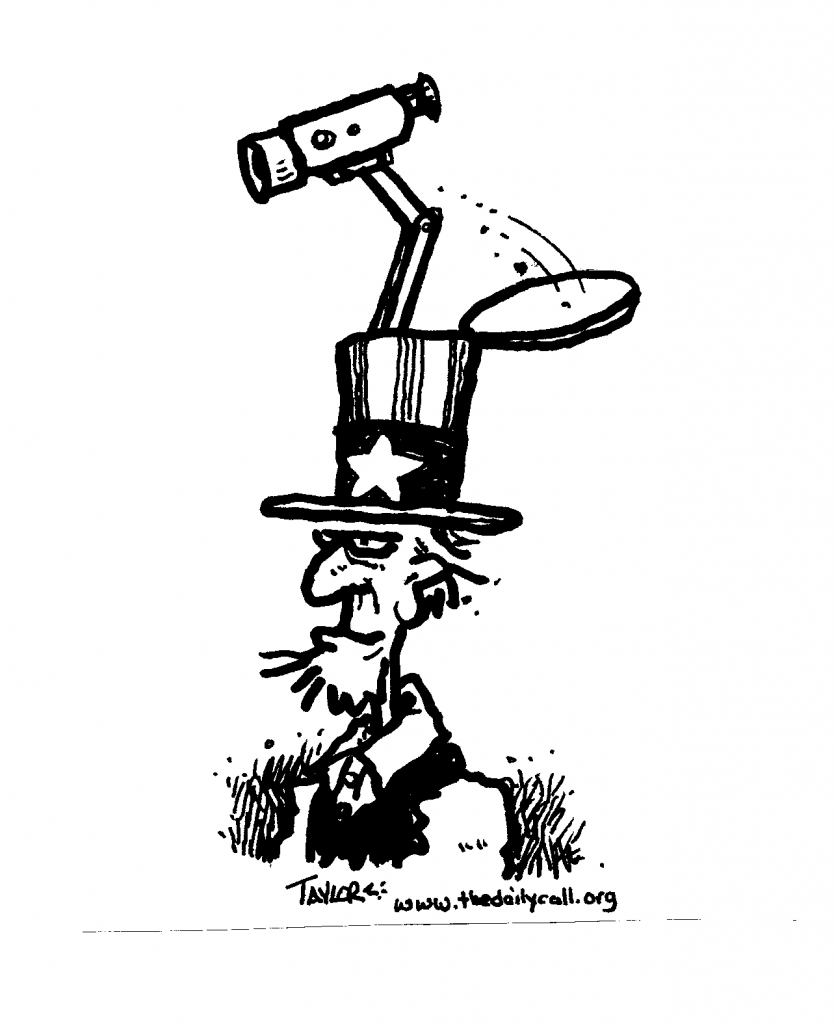It took a while, but FBI director Jim Comey got the grilling he deserves in the Apple v FBI case.
By Trevor Timm
The Guaridan (3/3/16)
Members of Congress did something almost unheard of at Tuesday’s hearing on the brewing battle over encryption between Apple and the FBI: their job. Both Democrats and Republicans grilled FBI director Jim Comey about his agency’s unprecedented demand that Apple weaken the iPhone’s security protections to facilitate surveillance. This would have dire implications for smartphone users around the globe.
Normally, congressional committee hearings featuring Comey are contests among the members over who can shower the FBI director with the most fawning compliments in their five-minute allotted time frame. Hard questions about the agency’s controversial tactics are avoided at all costs. But on Tuesday, in rare bipartisan fashion, virtually every member of the House judiciary committee asked Comey pointed questions and politely ripped apart his arguments againstApple.
One judiciary member questioned how the FBI managed to mess up so badlyduring the San Bernardino investigation and reset the shooter’s password, which is what kicked this whole controversy and court case in motion in the first place. And if the case was such an emergency, why did they wait 50 days to go to court? Another member questioned what happens when China inevitably asks for the same extraordinary powers the FBI is demanding now. Others questioned whether the FBI had really used all the resources available to break into the phone without Apple’s help. For example, why hasn’t the FBI attempted to get the NSA’s help to get into the phone, since hacking is their job?
Comey readily admitted that the San Bernardino case could set a precedent for countless others after it, and that it won’t just be limited to one phone, as the FBItried to suggest in the days after the filing became public. Comey said the FBI has so many encrypted phones in its possession that he doesn’t know the number (that’s not including the hundreds of local police forces that are itching to force Apple to create software to decrypt those as well). Comey also admitted under questioning that terrorists would just move to another encrypted device if Apple was forced to do what the government is asking, and that there are companies all over the world offering similar products.
More than anything, though, the members of Congress expressed anger that theFBI director didn’t follow through earlier on his stated intention to engage in a debate in Congress and the public about the proper role for encryption in society. Instead, he decided to circumvent that debate altogether and quietly go to court to get a judge to do what the legislative branch has so far refused to do.
(Daily Call cartoon by Mark L. Taylor, 2014. Open source and free to use with link to www.thedailycall.org )
This all comes on the heels of a judge in New York strongly rebuking the FBI and Department of Justice in a court decision on Monday. (The New York case is different from the high profile San Bernardino situation that has garnered more media attention.) Comey, despite knowing he would testify on Tuesday, decided not to read the opinion from the previous day. He didn’t give a reason for why he didn’t, but given the judge thoroughly dismantled every argument the government put forward, maybe he couldn’t stomach it.
The court hearing in the San Bernardino case is in two weeks, and there is no doubt that this is really only the beginning of the debate. But, for the first time, it seems like Congress has finally opened its eyes to the long-term effects of designing vulnerabilities into our communications systems and forcing tech companies to becomes investigative arms of the government.





